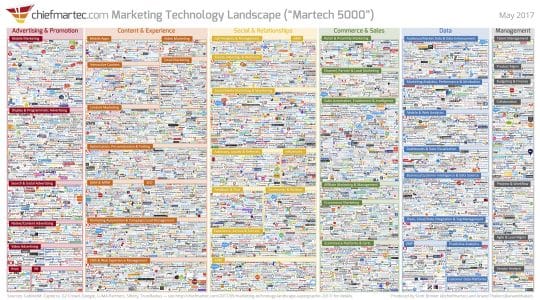Following up on our first post last week, here’s Part 2 of our chat with Ryan Morel of PlacePlay.
Transcription
Interviewer: A lot of publishers that we work with are in the freemium business, free play, in app purchases, things like that. How do you see the freemium business playing out over the next couple of years?
Ryan Morel: Yeah, we’re clearly seeing a big move towards freemium, amongst all publishers big or small. I think the interesting thing is going to be how it all shakes out, and whether or not people can actually generate the revenue required to support a business using freemium as a standalone model. We’ve seen and we talk to smaller app developers all the time, who were generating nice income with mobile advertising, decided they didn’t want to do that anymore, and just moved to in-app purchase model. But they haven’t been able to acquire enough users, and get their monetization metrics correct, so that they’ve made enough money.
So I think we’re going to see this trend towards three buckets of developer publishers. The first bucket is going to include the big guys, Z2Live, Zynga, EA, etc. who have very little advertising, maybe they do some offer wall stuff. Then there’s going to be the medium size guys, who still are focused on freemium as a model, but who also incorporate more mobile advertising. Where I think this gets interesting is when we start doing a better job as an industry of some predictive analytics, and understanding when someone’s actually going to pay you, when someone’s not going to pay you. And if they are not, incorporate advertising at that point. So there’s no technical hurdles to this at this point, I think it’s just a matter of some market education and getting the word out there that “hey, you can go do this.”
Interviewer: Are there any ways for developers to do that predictive analysis today?
Ryan Morel: Yeah, there are some companies that provide that, most of them are focused on the higher end market so they cost a lot of money. But that will come down. I know there’s a company in your tech stars class that’s sort of getting into that model, so there are definitely avenues for people to do it. To wrap up the question, I think it’s going to be really hard for the market as a whole to support freemium. I think there will be some really big guys that can afford it and acquire users and make a ton of money, and then there will be everybody else who wants to fight for scraps. What do you think?
Interviewer: Yeah, I think that’s really interesting. I think in-app purchasing is one of the best things that mobile has done right. Especially Apple with the easy payments, things like that. They’ve built up an amazing sort of universe of credit cards and users. But you’re right, a blended model has to be the future, there’s no way that one size fits all for every app developer. The more monetization techniques there are around the app ecosystem, the better off the app ecosystem will be.
Ryan Morel: Have you seen any effect on search as it relates to in-app purchase or advertising?
Interviewer: There are certain reasons why in-app purchase does help search or freemium. One is that downloads matter a lot for search ranking, free apps generate more downloads. So if you’re going free versus paid, then free will help you in search because you’ll have more downloads to rank higher. In-app purchases, for better or worse, I tend to think this is worse, I think it’ll go away. Right now, the title of all of your in-app purchases are always used as keywords for app search. So it goes along with the app title, the description, keyword field, and your in-app purchase titles. I think that goes away because it doesn’t actually make a whole lot. I can see where it comes from for things like magazines, or let’s pretend you have a magazine app, where you purchase each individual article. You might want to have the title of every article searchable. I tend to think that goes away, becomes less important, the model of free versus paid has more towards free; where the apps are sustained by a blended model of ads and in-app purchases and things like that. Lastly, what’s the single best tip you have for mobile app developers around ad targeting, monetization, all of that sort of stuff?
Ryan Morel: I don’t think I could give just one tip, especially if we’re talking about monetization as a whole. At a high level, I would say that app developers, especially those that don’t have their monetization metrics and tracking down really well, should try a bunch of different things and test to see what works best. Not only for them, but their content and their user base. From an advertising perspective there’s a couple of different things that should happen. One, developers should do what they can to get location based features into their IOS app, so they can use location based advertising. It unequivocally pays more, and it’s worth doing, if you can find a way to get it in there.
The second thing, these kind of become little tactical things that a lot of people just miss, is making sure you have a good mediation layer in there. That can be as simple as AdMob mediation, or you can step up a little bit and go MoPub, or if you have a lot of traffic, you can use Burstly. And another little tactical thing, is use singleton ad view, which a lot of developers don’t know about or don’t use. Singleton ad view ensures that you show the same ad as users scroll through screens as opposed to refreshing every screen, which artificially increases your impressions, and artificially decreases your click-through rates, that’s bad. I think the last thing I would say is mobile advertising has gotten a lot better over the last couple of years. I came from an app publisher, and we all had this bad experience with big promises and crappy delivery from mobile advertising. But it’s certainly gotten better, not only in terms of the amount of inventory that’s available, but also the support from mobile advertising companies, SDKs, etc.
Interviewer: That’s great. Thanks so much for being here, this was super informative. Placeplay.com, right?
Ryan Morel: Yep. www.placeplay.com, spelled like it sounds.
Interviewer: All right, thank you.
Author
Becky is the Senior Content Marketing Manager at TUNE. Before TUNE, she handled content strategy and marketing communications at several tech startups in the Bay Area. Becky received her bachelor's degree in English from Wake Forest University. After a decade in San Francisco and Seattle, she has returned home to Charleston, SC, where you can find her strolling through Hampton Park with her pup and enjoying the simple things between adventures with friends and family.






Leave a Reply
You must be logged in to post a comment.